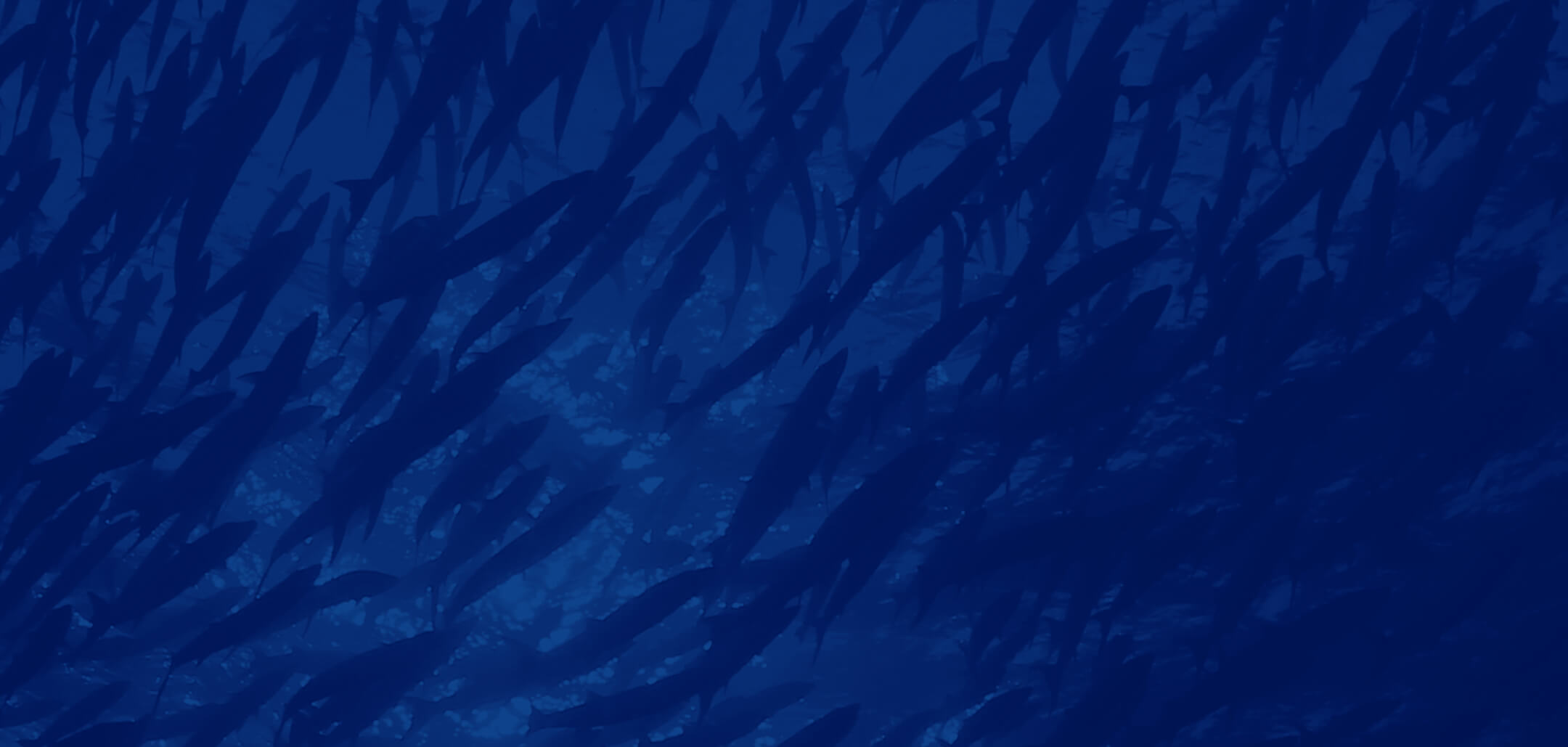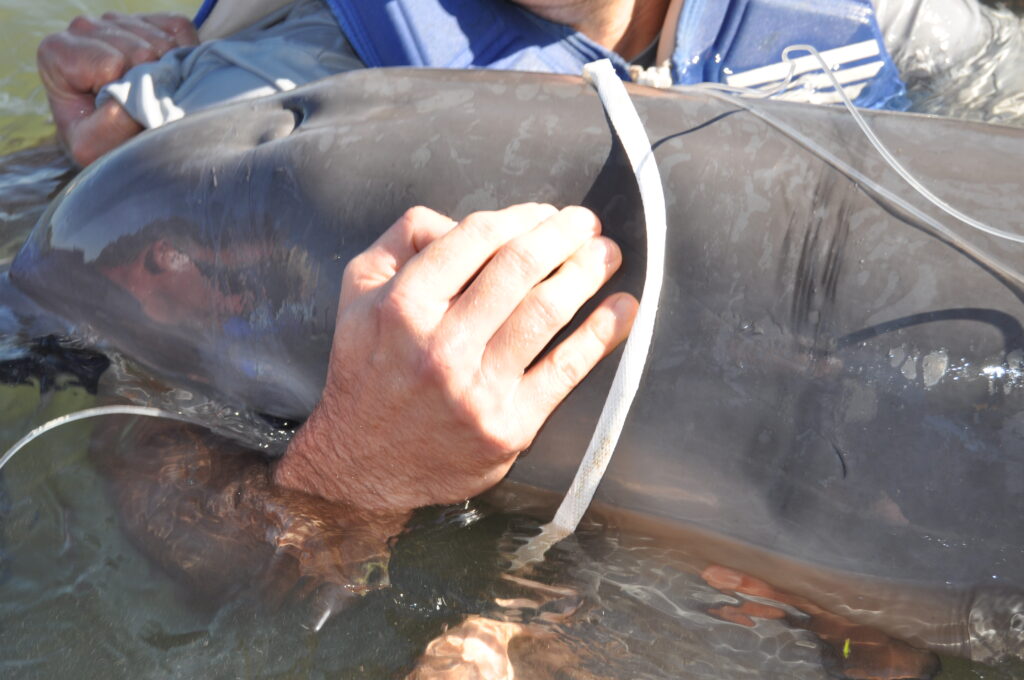A bottlenose dolphin calf estimated to be about 6-months-old is now safely swimming with her mom after rescuers freed her from life-threatening plastic debris and fishing lines caught around her body. The rescue took place Thursday morning, Oct. 15, off the west coast of Florida, near Clearwater.
The calf was first reported by a boat captain to National Marine Fisheries Service’s partner Clearwater Marine Aquarium (CMA) staff on Oct. 6. Boaters in the area around the Caladesi Island and Dunedin Causeway were notified via VHF radio to be on the lookout for the calf.
Once reports of sightings came in, NMFS organized a rescue team led by the Sarasota Dolphin Research Program (SDRP), a program of the Chicago Zoological Society (CZS) in partnership with Mote Marine Laboratory, and including collaborating biologists and veterinarians from Mote, CMA (who also provided most of the boats for the rescue), the Florida Fish and Wildlife Conservation Commission, the University of Florida, SeaWorld Orlando and NMFS, and an experienced net fisherman.
Accompanied by law enforcement vessels, the 37-person rescue team left the dock in Clearwater on five boats at about 8:30 a.m. Thursday, and by 10:21 a.m. the veterinarians and biologists had caught the calf, removed the entanglements, examined her and determined that she had no major injuries and would be able to be released with her mother. Dr. Randy Wells, Director of the Sarasota Dolphin Research Program, clipped a small tag to the calf’s dorsal fin, which will allow monitoring of her progress now that she is free of the gear. Both animals swam off side-by-side.
“This rescue was such an incredible effort by a number of collaborating organizations,” Wells said. “Although this calf was rescued successfully, many other dolphins have not had the benefit of becoming entangled in areas where people detect the occurrence and respond with a rescue. This story serves as a reminder for people to dispose of their trash, plastic waste and fishing line appropriately.”
The team was able to remove the entangling gear before it had caused more than superficial lacerations to the calf. The gear included a ring of plastic strapping material that encircled the dolphin’s chest, with two kinds of fishing line trailing from the ring.
“If not removed, the lines and debris would likely have cut deeply into the calf and eventually killed it,” Wells said. “While this story had a happy ending, so many don’t. Please dispose of trash properly. Marine debris can be deadly.”
If you see a stranded, entangled, injured or dead dolphin, whale, manatee or sea turtle anywhere in Florida, please call the FWC Wildlife Alert hotline at 888-404-FWCC (3922). For marine mammals and sea turtles in Sarasota or Manatee county waters, you can contact Mote’s Stranding Investigations Program, a 24-hour response service, at 888-345-2335.


